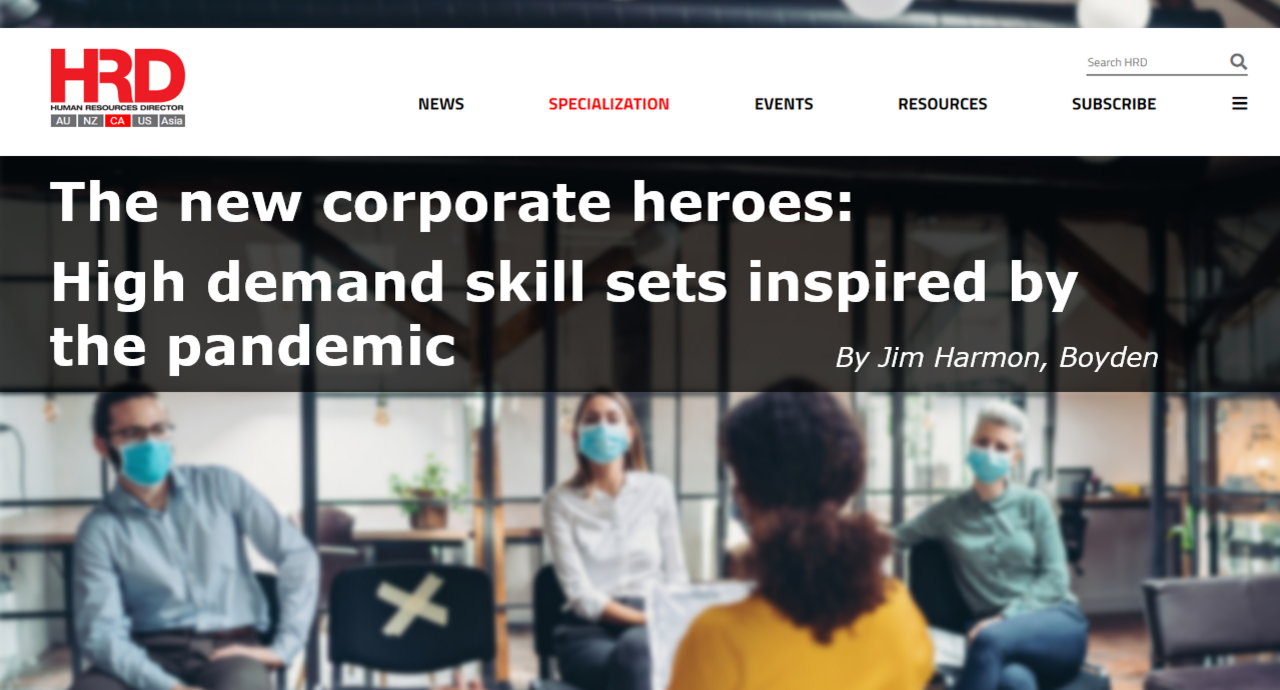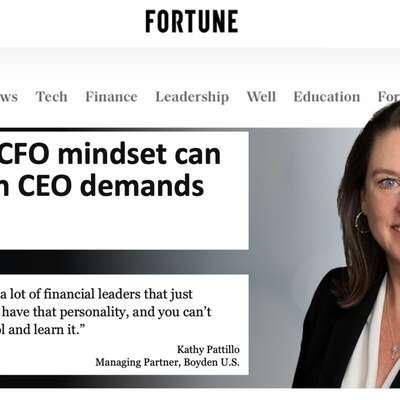This is a seismic leadership shift that requires a new mindset
This article was originally published by Human Resources Director magazine.

For some progressive companies, particularly those that had modernized their information technology and remote work policies, the transition to working-from-home during the pandemic was more a molehill than a mountain. What all leaders are learning as the pandemic persists, however, is that success in the new normal isn’t just about slick video conferencing capabilities and an efficient filing nomenclature. This is a seismic leadership shift that requires a new mindset and, in many cases, a new skill set across all levels of the organization.
Supply chain issues, digital transformation, changing regulatory obligations and resourcing challenges are just a few of the new business dynamics inspired by the pandemic. More broadly, we are seeing greater consolidation and diversification and accelerated decision making on those strategic topics. As a result, functions many leaders never saw as top priority have become the new corporate heroes. And, what it takes to lead these teams has changed, inspiring new in-demand skill sets in the executive leadership ranks.
At Boyden, where we get a close up view of these organizational trends through our search and leadership consulting work, here is what we are seeing:
The culture of the senior leadership team: The pandemic has catapulted us into a period of change. Not just in how we work. We see it in the downstream economic impact of lockdowns and in how governments around the world are planning for a financial recovery. An organization’s success is now much more dependent on the strategic foresight, agility and resiliency of its leadership. Leadership teams must be able to scan the market, see the opportunities that can transform the business, pivot effectively and drive those same cultural values throughout their team and the organization.
At the same time, never before have the “soft skills” been so important in the C-Suite. Leaders who can cross the digital divide and still connect to and influence their people will be the winners in the pandemic and beyond, as remote work becomes the expectation and the norm.
Human Resources at the executive table: There is no question that COVID-19 has had a profound impact on workforces. With basic income virtually guaranteed through government subsidies in many countries, an amplification of long-term health, safety and workplace implications, and an imperative for revised organizational design, the debate around whether HR should be at the executive table may have finally settled itself. Strategic HR counsel is an imperative in this new world
Risk - from oversight to religion: Risk managers at organizations all over the world are likely saying “I told you so,” and we deserve it. Not only have they been raising the pandemic possibility for years but, in sophisticated organizations, they have been working to transition risk from a function to a cultural norm. While many risk titles relate to specific areas of risk - financial, food safety, business continuity - all roles at all levels should now address risk, the accountabilities should consolidate at the senior management team, and the board should take a more hands-on role in the risk registry.
A voice into government and regulators: With vast government support programs that have looming implications for business, impending global policies that could impact supply chain and product-category sovereignty, and anticipated growth in regulation around safety and security, there is a good chance your organization needs to amp up its lobbying and advocacy efforts. An understanding of and a voice into government and regulators has become a vital function for many organizations coping with much more engagement from the state.
Unsung heroes of Communications unearthed: Communicators spend their entire careers behind-the-scenes making everyone else around them look good. Take a step back and consider how your organization's transition to work-from-home went. Are your employees still collaborating? Is morale in decent shape? Do you still have a platform to connect with your employee base? The role Communicators play in employee morale, culture and reputation management is having its day in the sun and, with that light finally switched on, this function will only grow in value and prominence as organizations look to these strategic advisors for counsel and advice.
This is certainly not an exhaustive list. Next-gen supply chain management, e-commerce, digital marketing, payments and cybersecurity are all hot skills to have in this market as well. So, whether you lead an organization struggling to adapt to the new world or you are a candidate with pandemic-inspired capabilities, now is the time to capitalize on the flux and prepare for the skills of the future.



